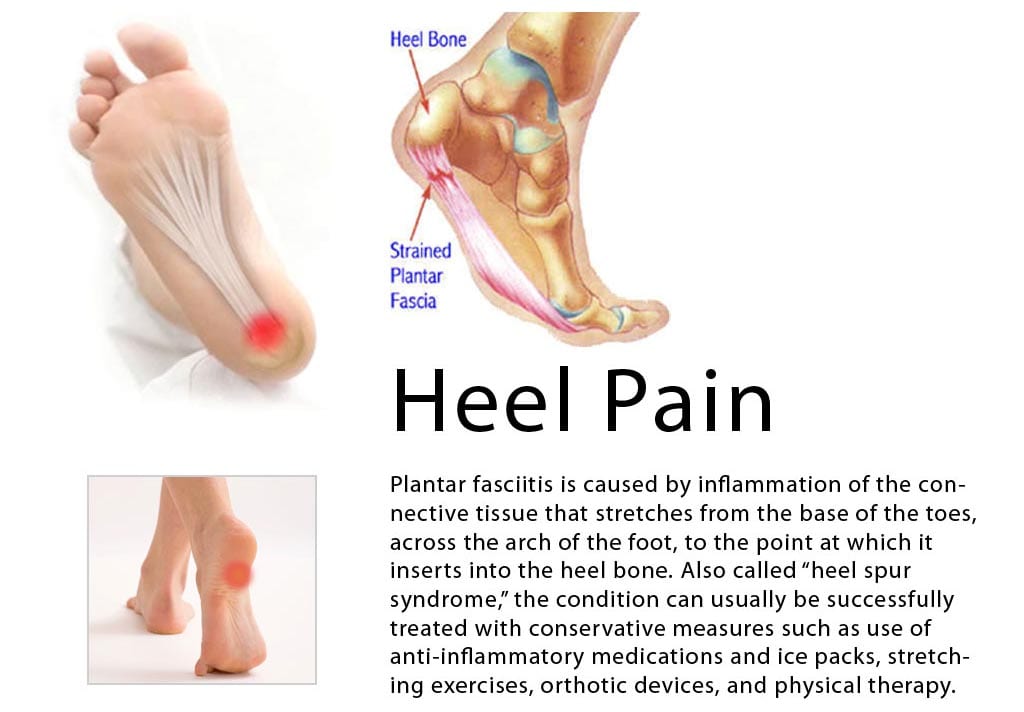Plantar Fasciitis / Fasciite Plantaire
Heel pain is usually mild and can disappears on its own; however, in some cases the pain may persist and become chronic. We are here to help diagnose the problem and find a solution for you.
Heel Pain

Does your heel hurt when you get out of bed in the morning?
Does it get a bit better when you’ve walked around a bit?
Does it hurt again when you get up after sitting for a while?
Does it start to hurt yet again if you’ve been on your feet for a long time?
Are you putting off exercising because your heel hurts too much?
Well, you may have something that us specialists call Plantar Fasciitis. It’s just a fancy medical word for: “Ouch, I have really bad heel pain!!!”
Did you know that anytime you see the word “plantar” when talking about the foot, it just means bottom of the foot!
What is Heel Pain – Plantar Fasciitis?
It’s the ligament under your foot that’s being over-stretched and pulling on the bone of your heel.
It can be caused by many reasons such as: flat feet, high arches, wearing bad shoes, being overweight, gaining some weight quickly like in pregnancy, going from hardly ever exercising to suddenly starting an exercise program, walking on hard floors, or wearing shoes that have gotten too old and are worn out.
Why does it hurt so much in the morning or after I’ve been sitting?
When you are sleeping your brain says to your heel: “Hey heel, let me help you!”. So extra blood goes to the area and tried to make it better but when you wake up and put your foot down, you’re pushing all that blood out of there and getting pain which is your brain’s way of saying: “Wait, I’m not done making it better yet!” Every time you get that pain, you are causing little tiny tears in the ligament and causing scars to form which will make it more difficult to get this problem to go away.
Also, when you sleep, the foot is relaxing and when you get up, you are stretching it even more, without giving it time to warm up.
How we can help your Heel Pain – Plantar Faciitis
- You will get lots of sympathy about this from our Chiropodist since she’s had this problem herself and knows just what you’re going through.
- A full examination of your feet, shoes and activities will help us figure out why this is happening
- We will discuss with you what shoes are best for your foot type
- We will determine if you need to do stretches and teach you which ones and how to do them properly
- We will see if your foot has any imbalances and might need custom-made orthotics
Note: Please consult your physician before taking any medications.
